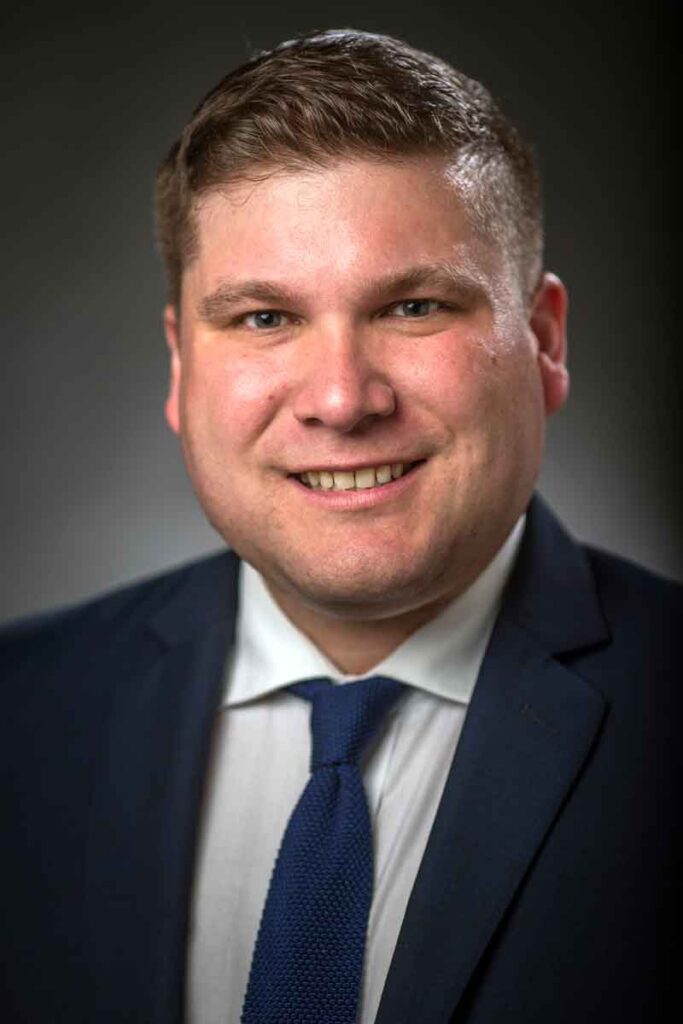In conjunction with LGBTQ+ History Month, Omar also looks back on the impact of 2016’s tragic Pulse shooting
In mid-September, we kicked off Latinx Heritage Month with a remarkable story about the enduring legacy of trans pioneer Sylvia Rivera, written by Lambda Legal Public Information Officer Samy Nemir Olivares. We also spoke with Lambda Legal senior attorney Richard Saenz about the “beauty, diversity, and perseverance” of the Latinx community, and highlighted additional queer Latinx leaders, past and present.
Now, we turn our attention to Omar Gonzalez-Pagan (he/him), Counsel and Health Care Strategist at Lambda Legal. Among his many achievements, Omar was instrumental in achieving a pivotal victory in the U.S. Supreme Court case Obergefell v. Hodges, securing marriage equality nationwide.
As Health Care Strategist, Omar has been a leading advocate for the Affordable Care Act, particularly as it applies to LGBTQ+ people, ensuring access to gender-affirming medical care for transgender people across the country. He is also one of the architects behind Lambda Legal’s efforts to secure the ability of transgender people to obtain accurate identity documents, such as in the case of Arroyo González v. Rosselló Nevares in Puerto Rico.
And he is lead counsel in Immigration Equality v. U.S. Department of Homeland Security, where, on behalf of Immigration Equality, Oasis Legal Services, the TransLatin@ Coalition, Black LGBTQIA+ Migrant Project, and Transgender Law Center he obtained an injunction stopping the Trump administration “death-to-asylum” rule from ever taking effect.
In a Q&A inspired by our long-running “Meet Our Lawyers” interview series, Omar talks about the Latinx community’s “rich, complex, and ever-evolving history.” He shines a light on Felisa Rincón de Gautier, the first woman to be elected as mayor of a capital city in the Americas, as well as reflects on the impact of 2016’s tragic Pulse shooting in Orlando.
There is no one singular experience that defines or represents the Latinx community. But how would you describe the community in your own words? And what makes you proud to be a part of it?
This is a difficult question to answer as the Hispanic and Latine communities are themselves very diverse. Our heritage and cultures, as varied as they are, share the fact that they are based on the amalgamation of the influences, stories, and backgrounds of native people, enslaved people, colonizers, and migrants. I am thus most proud of our community’s rich and complex history. To be Hispanic or Latine, we neither need to abandon who we are as a people nor be wedded to others’ ideas about who we are because our history (past, present, and future) is one of ever evolving change, at every level.
That said, from my perspective as a Puerto Rican man, I believe one of the defining features of the Hispanic and Latine communities is the prominence of family and the role it plays in our individual lives and communities. I think that as a community we are at our best when family can be a source of acceptance rather than rejection, and we can see how that family acceptance can foster greater community acceptance and celebration of LGBTQ people.
And finally, of course, one must always be proud of our cuisine.
Please name a person [family, friend, role model, icon, or historical figure] that you want to personally highlight this month. And then explain why or how they inspire you.
A particular role model I would like to elevate is Felisa Rincón de Gautier, affectionately known as Doña Fela. Doña Fela was a true female trailblazer and all around exceptional public servant. The first woman to be elected as mayor of a capital city in the Americas, she was the mayor of San Juan, Puerto Rico — where I am from — for 22 years (from 1947-1969). A suffragist, Doña Fela was a true visionary who made San Juan, Puerto Rico into the epicenter of culture and commerce it is still today. She was known for her preservation of historical and cultural landmarks and created the program (“Escuelas Maternales”) that served as the model for the federal government’s Head Start program. In 1994, when I was nine years old, I had the opportunity to attend her funeral. I saw firsthand how beloved she was and in what high esteem she was held by people of all backgrounds. That moment helped influence my commitment to public service and the public interest.
Please name a case, social/political movement, or historical event that you think has impacted the community the most — positively or negatively, it’s up to you — these past 10 to 15 years. And then explain why or how.
One of the most devastating and impactful moments for me of the past decade was and remains the Pulse mass shooting. The hatred that we try to fight everyday claimed the lives of so many (49 people, specifically) in a way that solidified for me the reality that these forces threaten not just LGBTQ people, not just people of color, but really anyone who is an “other.” As we read the names of the victims, saw their faces, and learned their stories, one simple thought crossed the mind of each Hispanic or Latine LGBTQ person: “That’s me.” As I wrote in the wake of the tragedy, that day “opened wounds, broke hearts, awoke a nation, and opened our eyes.” I am proud of how Lambda Legal responded by declaring gun violence to be an LGBTQ issue and by allowing me and my colleagues to walk the walk by filing a historic brief before the U.S. Supreme Court in New York State Rifle & Pistol Association Inc. v. Bruen advocating for reasonable gun violence prevention measures, because “Reasonable gun regulations save LGBTQ+ lives.”
Check out more of our blogs here, including recent pieces on National Coming Out Day, Banned Books Week, and Suicide Prevention Month.

